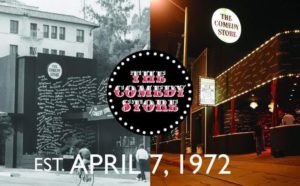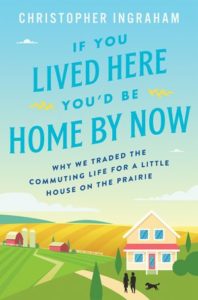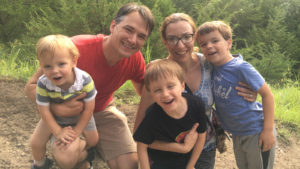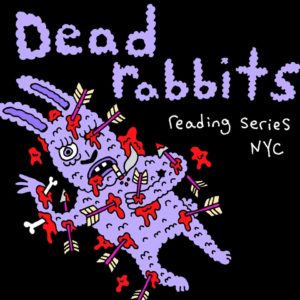Publishing Talks: David Wilk interviews Brian Birnbaum of Dead Rabbits
December 31, 2019 by David
Filed under PublishingTalks, The Future
 Publishing Talks began as a series of conversations with book industry professionals and others involved in media and technology, mostly talking about the future of publishing, books, and culture. As every media business continues to experience disruption and change, I’ve spent time talking with some of the people involved in our industry about how publishing might evolve as it is affected by technology and the larger context of culture and economics.
Publishing Talks began as a series of conversations with book industry professionals and others involved in media and technology, mostly talking about the future of publishing, books, and culture. As every media business continues to experience disruption and change, I’ve spent time talking with some of the people involved in our industry about how publishing might evolve as it is affected by technology and the larger context of culture and economics.
Some time back, this interview series broadened to include conversations that go beyond the future of publishing. In an effort to document the literary world, I’ve talked with a variety of editors and publishers who have been innovators and leaders in independent publishing in the past and the present, and continue to explore the ebb and flow of writing, books, and publishing in all sorts of forms and formats, as change continues to be the one constant we can count on.
There are many reasons to establish an independent literary venture, but usually the urge is based in the most basic impulse to publish, i.e. make public, work that matters, either to an individual, or a group of writers clustered around a particular geography or literary pursuit. Dead Rabbits is one such new venture. Its founders began by creating a poetry reading in a place that was underserved. The Dead Rabbits Reading Series was founded in 2014 by Devin Kelly (Sarah Lawrence MFA ’15), Katie Longofono (Sarah Lawrence MFA ’14), and Katie Rainey (Sarah Lawrence MFA ’14) as a way of providing a place for an emerging young New York City literary scene to exist and thrive in Upper Manhattan.
Out of that extremely successful undertaking – with a long list of readers with whom I confess I was not familiar – Katie Rainey, Jonathan Lee Kay and Brian Birnbaum subsequently founded Dead Rabbits Books (“Books that Matter”). Their first publication is Brian Birnbaum’s novel, Emerald City, with several more books planned and ambitions to establish a long term self sustaining publishing venture.
I’ve talked to many folks in publishing who have spent years at their work and thought it would be a useful counterpoint to talk to someone new, on the other end of the spectrum, is just beginning the struggle to publish and reach readers in new ways that have continued to emerge over the past few years.
Dead Rabbits is emblematic of a new generation of writers and editors that is in many ways wrestling with the same challenges that have faced every generation before them, but the current environment is also very different than it has been at any time in the past. Social media creates unmatched opportunities for communication and at the same time a vast array of issues for any new enterprise trying to be discovered. It seems there are more poets and independent presses than ever, all competing for an audience of readers for whom poetry is yet another option for consumption alongside every other media form. Which makes this a very interesting time indeed. Good luck to Dead Rabbits, (in all their various literary ventures) – this is a group of young literary adventurers who seem to have some very good ideas as well as access to some very good writing. Anyone interested in the current literary scene should listen to this podcast.
Podcast: Play in new window | Download
Brook Simons: Nothing to Write Home About
December 16, 2019 by David
Filed under Non-Fiction, WritersCast
 Nothing to Write Home About – Brook Simons – 9781626468702 – Booklocker – paperback – 232 pages – $16.95 – April 15, 2014 – ebook available at lower prices
Nothing to Write Home About – Brook Simons – 9781626468702 – Booklocker – paperback – 232 pages – $16.95 – April 15, 2014 – ebook available at lower prices
In her late twenties, in 1977, Brook Simons picked up stakes and moved to Los Angeles from Connecticut, where she grew up on a farm in a small town, which happens to be right next door to where I grew up. While Brook and I did not know each other in Connecticut, she ended up marrying an old friend of mine from Yale, who also moved to LA to start a new life just after Brook did. So while we have never met, I felt a connection to this book from the outset.
Brook’s memoir is one of the bravest and rawest pieces of personal nonfiction I have ever read. I think the word insouciant fits who Brook was during the time of this story, which coincides with the rise of the drug fueled stand up comedians who gathered in Los Angeles around the Comedy Club and television studios of Hollywood in an anxiety and angst ridden explosion of personal exposure. Not all of the funny stuff was really funny, and the mostly male community of comics was pretty solidly male-centered and frankly not only self loathing and self degrading, but extremely misogynistic.
In some ways, brash young Brook fit in with this crew, as her story shows us so evocatively and painfully. She loved the energy, the drugs, and the comedy, but she also became attached to one of the comedians with whom she developed a highly dysfunctional and brutal relationship that ultimately led her to the brink of disaster on many levels.
There really is a lot to write home about here, and Brook writes it well. I don’t want to give away the story in any form. I think you should listen to our conversation and then read the book to understand the story Brook is telling on herself toward showing how danger and power can seduce us, take us beyond the places that are safe, and sometimes cause damage that goes far beyond what anyone should be able to experience. It’s a story that antedates #MeToo, but which ought to be required reading for every woman and man who cares about changing the power relationships between male and female in a positive way.
I was really stunned by this book and hope you will find this interview of interest, along with the book itself. You can buy it from my friends at RJ Julia Booksellers in Madison, Connecticut. Support independent bookselling and order Nothing to Write Home About here.
Podcast: Play in new window | Download
Christopher Ingraham: If You Lived Here You’d Be Home By Now
December 3, 2019 by David
Filed under Non-Fiction, WritersCast
 If You Lived Here You’d Be Home By Now: Why We Traded the Commuting Life for a Little House on the Prairie – Christopher Ingraham – 9780062861474 – Harper Collins – Hardcover – 288 pages – $24.99 – September 10, 2019 – ebook version available at lower prices.
If You Lived Here You’d Be Home By Now: Why We Traded the Commuting Life for a Little House on the Prairie – Christopher Ingraham – 9780062861474 – Harper Collins – Hardcover – 288 pages – $24.99 – September 10, 2019 – ebook version available at lower prices.
Despite both having good jobs, Chris Ingraham, a data reporter at the Washington Post, and his wife Briana, an administrator at a Social Security office, were having trouble with the mechanics of raising twin boys in the expensive metro area suburbs. One day, Chris wrote an article that would change his life. It was based on a USDA ranking of America’s 3,000+ counties from ugliest to most scenic. Chris found Red Lake County, Minnesota at the bottom of the list and without thinking about the people who lived there, called it “The absolute worst place to live in America.” In the quiet of an end of summer news cycle, his seemingly innocuous story went viral with a vengeance.
And unsurprisingly, some of the strongest reactions came from residents of Red Lake County. In their “Minnesota Nice” way, they asked him to think outside the numbers, and actually visit their community, and Chris, perhaps against his better judgement, agreed to fly to this isolated area of northwestern Minnesota to see for himself. He was surprised by the people he found there, not just because they were nice, but because the small towns and rural areas of northern Minnesota – miles from the nearest Whole Foods and Starbucks – turned out to be more than nice, but warm, familial and interesting.
But the big twist in the story turns out to be that after realizing how hard it was for them to live happily where they were, Chris and Briana and their kids decided to pick up stakes and move to the same Minnesota community his article had dissed in the first place.
If You Lived Here You’d Be Home by Now is ultimately, then about what happens when you make a momentous life decision that changes your life and challenges everything you think you know about yourselves and your country. In Red Lake County, the Ingraham family experience the travails of small-town gossip, learn how to deal with “real” winters in a place where temperatures commonly reach forty below zero, try to understand new activities like hunting and hockey, and how to relate to nearby neighbors who know everything about your daily comings and goings. But they also learn the joys and pleasures of life in a small community, where what you do can make a huge difference. Ingraham has a great sense of humor and is a natural storyteller. And while not everything that happens to them is either uplifting or transcendent, there is a lot here for all of us to learn about the truths and myths of small town life in America.
Ingraham has the benefit of being able to work remotely for the Washington Post, so he at least does not have to struggle with the difficulty of finding work in a small town, something that is a huge problem for many Americans who do want to stay in their hometowns. And not everyone who chooses to live in small town America is either some sort of hero or a victim of bad judgment; life is much more complex than that. The story of Chris and Briana and their kids making a massive life change is a great reminder, however, that there is so much experience in rural areas that is worthy of celebrating and preserving, before our entire country becomes a giant suburban mall.
“Thank you, Christopher Ingraham for venturing out of the bubble of stereotyping and misunderstanding that often confines American urbanites who never leave the city and smugly judge rural Americans from their leather couches. I love Mr. Ingraham for his open mind and reporter’s grasp of detail and complicated truth. He captures the charm of a small town entertainingly, without sentimentality or the canned platitudes of those who drop in for a day and count themselves expert analysts after lunchtime. Good work!”
– George Hodgman, NY Times bestselling author of Bettyville
I am pleased to announce a new enhancement to Writerscast — all the books we feature are available for purchase from our friends at R.J. Julia Booksellers in Madison, Connecticut.
You can buy a copy of If You Lived Here, You’d Be Home by Now, and know that by doing so, you are supporting independent bookselling. Click on this link to visit the RJ Julia bookstore site.
A fun PBS story about Chris, family, Minnesota and the book is here.

Podcast: Play in new window | Download



